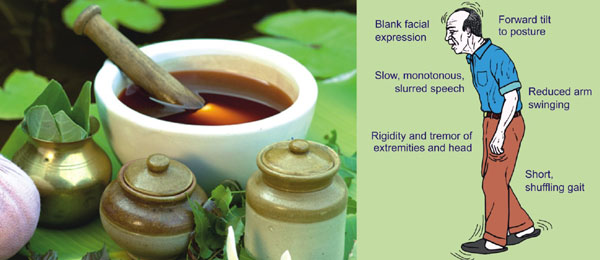
Parkinson’s disease
Parkinson’s disease is a long-term degenerative disorder of the central nervous system that mainly affects the motor system. The symptoms generally develop slowly over some time. In the early stage of the disease, problems like shaking, rigidity, slowness of movement and difficulty with walking can be noticed.
Signs and symptoms
Parkinson’s disease affects body movements, producing motor symptoms. Non-motor symptoms include autonomic dysfunction, neuropsychiatric problems (mood, cognition, behaviour or thought alterations), sensory and sleep difficulties. Some of these non-motor symptoms are often present at the time of diagnosis and can precede motor symptoms.
Four motor symptoms observed in Parkinson’s Disease are tremor, rigidity, slowness of movement and postural instability. Other recognised motor signs and symptoms include gait and posture disturbances such as festination (rapid shuffling steps and a forward-flexed posture when walking) speech and swallowing disturbances including voice disorders, mask-like face expression or small handwriting, etc. Parkinson’s disease can cause neuropsychiatric disturbances, which range from mild to severe. This includes disorders of speech, cognition, mood, behaviour and thought.
Ayurvedic Approach
The Ayurvedic treatment strategy is to sustain neuro-nutrition by Panchakarma and Rasayana remedies.
- The Panchakarma procedures are given according to the condition of the patient
- Internal herbal medicines are given too
- Specific exercises are recommended as it increases the patient’s overall health and functionality
- The patient is given a nutrition-rich diet
- Yoga and meditation to help build resistance and immunity in the body and improve regulation and balanced functioning of the nervous system
- Being a neurodegenerative disease, Parkinsonism is treated by rasayana or rejuvenating approach in Ayurveda.

